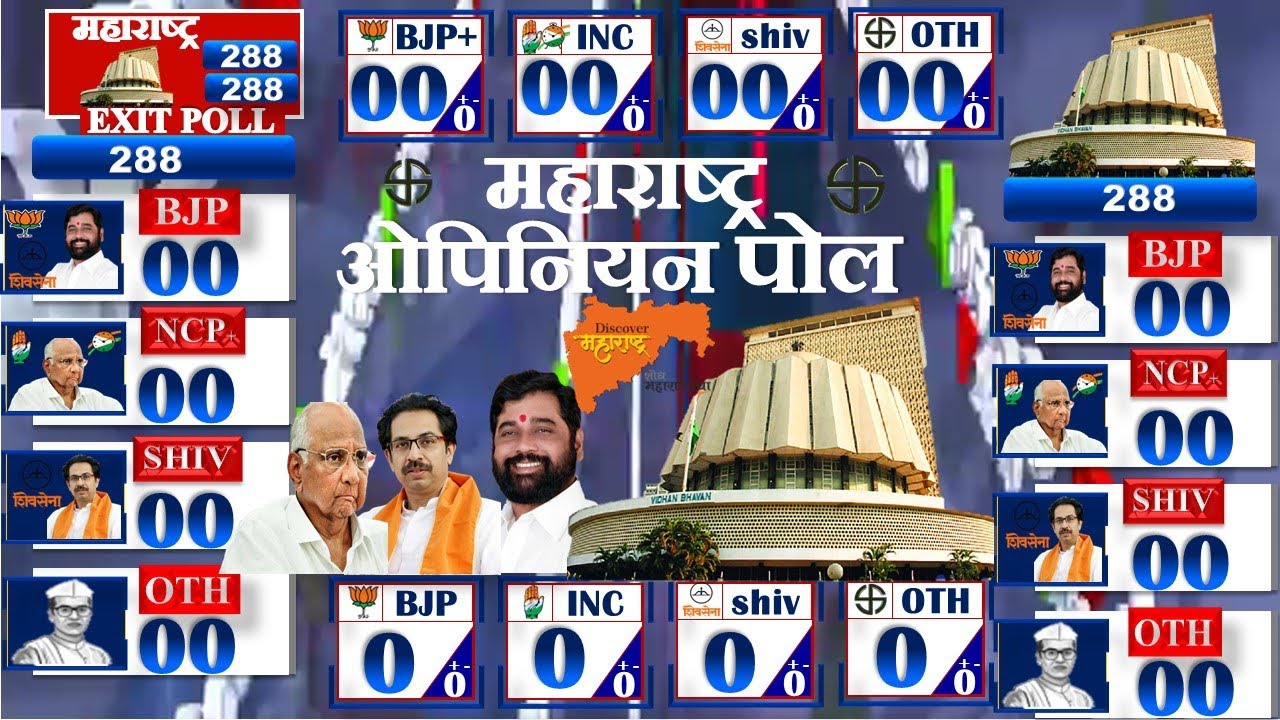


Senior leader of the Shiv Sena, Sanjay Raut, has demanded a re-election using ballot papers due to alleged irregularities in the use of electronic voting machines (EVMs) during the Maharashtra Assembly polls. Deputy Chief Minister Ajit Pawar has come to the defense of the opposition party, stating that they should not blame EVMs for their loss. The Sena leader also cited complaints from party workers across the state, suggesting that the results do not add up and there may have been foul play during the counting process. The party has been advocating the use of ballot papers for the past decade and is now demanding that the Election Commission hold fresh elections using this method.
EVMs: A Contentious Issue in Indian Elections
The use of electronic voting machines (EVMs) in Indian elections has been a contentious issue, with allegations of irregularities and foul play surfacing periodically. The recent Maharashtra Assembly polls have reignited the debate, with senior Shiv Sena leader Sanjay Raut demanding a re-election using ballot papers.
Background
EVMs were first introduced in India in 1998, with the intention of making the electoral process more efficient, accurate, and tamper-proof. However, concerns have been raised about the machines' reliability, transparency, and vulnerability to manipulation.
Allegations of Irregularities
Over the years, numerous allegations of irregularities in EVM usage have been made. These include:
Shiv Sena's Demand for Ballot Papers
In the wake of the Maharashtra Assembly polls, the Shiv Sena has emerged as the most vocal critic of EVMs. Party leaders have alleged widespread irregularities, including the deletion of votes cast in their favor. Sanjay Raut has demanded a re-election using ballot papers, claiming that EVMs cannot guarantee a fair and transparent electoral process.
Support and Opposition
The Sena's demand has received support from other opposition parties, such as the NCP and the Congress. However, the ruling Bharatiya Janata Party (BJP) has strongly defended the use of EVMs, stating that they are the most secure and reliable method of voting. The Election Commission of India (ECI) has also maintained that EVMs are tamper-proof and have not been found to be manipulated in any election.
FAQs on EVMs
Q1: How does an EVM work? A: An EVM is a small electronic device that records and counts votes cast by electors. When an elector presses a button on the machine to cast their vote, the machine records the vote electronically and displays the candidate's details on a screen.
Q2: Are EVMs tamper-proof? A: According to the ECI, EVMs are tamper-proof and encrypted to prevent any unauthorized access or manipulation. However, concerns have been raised about the possibility of hacking and other forms of external interference.
Q3: Have there been any instances of EVM malpractice? A: There have been some allegations of EVM malpractice in the past, but no conclusive evidence of widespread tampering has been established. The ECI has maintained that all EVMs undergo rigorous testing and audits to ensure their accuracy and integrity.
Q4: Why do some parties oppose EVMs? A: Some political parties have opposed the use of EVMs, alleging that they are opaque and vulnerable to manipulation. They argue that ballot papers provide greater transparency and allow for manual recounts in case of disputes.
Q5: What is the future of EVMs in India? A: The use of EVMs is likely to continue in India, given their efficiency and cost-effectiveness. However, the ECI is constantly working to improve the security and transparency of EVMs, and it is possible that further advancements in technology may address some of the concerns raised by critics.

Kerala General Education Minister V Sivankutty has clarified that the state government agreed to join the Centre's PM SHRI scheme to prevent the loss of approximately ₹1,500 crore in central funds. He stated that the state will not compromise on its education policies and will continue to publish its own textbooks. With the agreement allowing either party to withdraw at any time, the minister asserted that Kerala has the right to approach the court if necessary. He added that funds from the scheme are also used to support autism centres and other projects in the state, making it crucial for the education department to take steps to prevent the loss of funds.

In the 127th episode of his monthly radio programme 'Mann Ki Baat', Prime Minister Narendra Modi emphasized the enduring significance of the national song 'Vande Mataram'. He urged all Indians to celebrate the 150th year of the song's composition and instill its message of patriotism and unity in the younger generations. Tracing its origins, PM Modi highlighted how the song reflects India's ancient wisdom and the powerful bond between "Ma Bharati" and her children. The programme, launched in 2014, aims to connect with various segments of Indian society and is now broadcast in multiple languages across the world.

During his monthly radio programme, PM Narendra Modi addressed various topics including the importance of Chhath festival in showcasing India's social unity, the recent success of Operation Sindoor by the armed forces, and the upcoming celebrations for Sardar Patel's birth anniversary and Birsa Munda's legacy. He also urged citizens to participate in the Run for Unity event on October 31 and highlighted the significance of 'Vande Mataram' in Indian culture.

JD Vance, the current US Vice President, publicly criticized Zohran Mamdani, a Democrat running for the position of New York City Mayor, for his recent comments about Islamophobia and 9/11. Vance argued that Mamdani's remarks failed to acknowledge the 3,000 individuals who lost their lives and those who were injured during the terrorist attack. Mamdani, who shared his aunt's experience of discrimination post-9/11, spoke at a mosque in the Bronx and highlighted the fear that many Muslims faced in the city.

In honor of World Polio Day, local restaurants in Minnesota are teaming up for the "End Polio Now" event to raise awareness and funds for polio eradication. From 7 a.m. to 7 p.m., residents are encouraged to dine at participating restaurants where volunteers will educate them on the impact of polio worldwide and how to help. The event's signature sponsor, Eagle Rock, along with other local restaurants, will donate proceeds to Rotary International, which uses funds to provide polio vaccines to children in vulnerable areas. This effort is crucial given that polio continues to be a problem in some parts of the world, even though it has been eliminated in the US since 1979.

In a tightly contested race for the Rajya Sabha seats in Jammu & Kashmir, the ruling NC alliance emerged victorious, securing three out of the four seats. The BJP, which held only 28 seats in the Assembly, had hoped for a win through cross-voting or support from smaller groups. However, the NC's dominant position in the 88-member Assembly reaffirmed voter trust in their post-Article 370 political stability. PDP President Mehbooba Mufti also congratulated the NC candidates and expressed hope that they will strongly represent the people of Jammu & Kashmir in Parliament.

Mayor Derek Slaughter has vetoed a recent city ordinance that limits the terms of elected officials, citing concerns about retroactivity and lack of language addressing current officials. This veto comes after the ordinance was adopted in a 6-0 vote by City Council, with the mayor absent. If legally challenged, the defense of this ordinance could result in unnecessary costs for taxpayers. The mayor's decision has sparked a response from council members, with attempts to reach them for comment.

Prime Minister Narendra Modi addressed his first election rally in Bihar and expressed confidence in winning the upcoming polls. He mocked the opposition INDIA bloc and praised the unity within NDA, highlighting leaders like Nitish Kumar, Chirag Paswan, Jitan Ram Manjhi, and Upendra Kushwaha. Modi also criticized the 'jungle raj' under RJD and Congress and highlighted Bihar's progress under Nitish Kumar's tenure. Despite the upcoming Chhath festival, the PM thanked the crowd for attending and described the recent GST rate revision as a 'festival of savings'.

The suspension of Praveen Kumar K P, a PDO serving in Sirwar taluk of Raichur district, for participating in an RSS rally has sparked controversy in Karnataka. BJP leaders have condemned the move and promised to fight it legally, claiming that the officer's right to participate in such events is protected by law. Meanwhile, the state's Rural Development Minister has written to the Chief Minister for a ban on RSS activities on government premises, further intensifying the issue.

In a heated verbal exchange, Maratha quota activist Manoj Jarange Patil accused NCP Minister Chhagan Bhujbal of attempting to create a rift between the OBC and Maratha communities for political gain. During a recent OBC rally in Beed, Bhujbal and Dhananjay Munde attacked Jarange, with Pankaja Munde, a BJP OBC leader, watching from the sidelines. Jarange also praised Chief Minister Devendra Fadnavis and Minister Pankaja Munde for staying away from the rally and emphasized the unity of the OBC community. Bhujbal, on the other hand, warned Jarange against challenging the community's rights and vowed to stand up against any attempts to divide them.